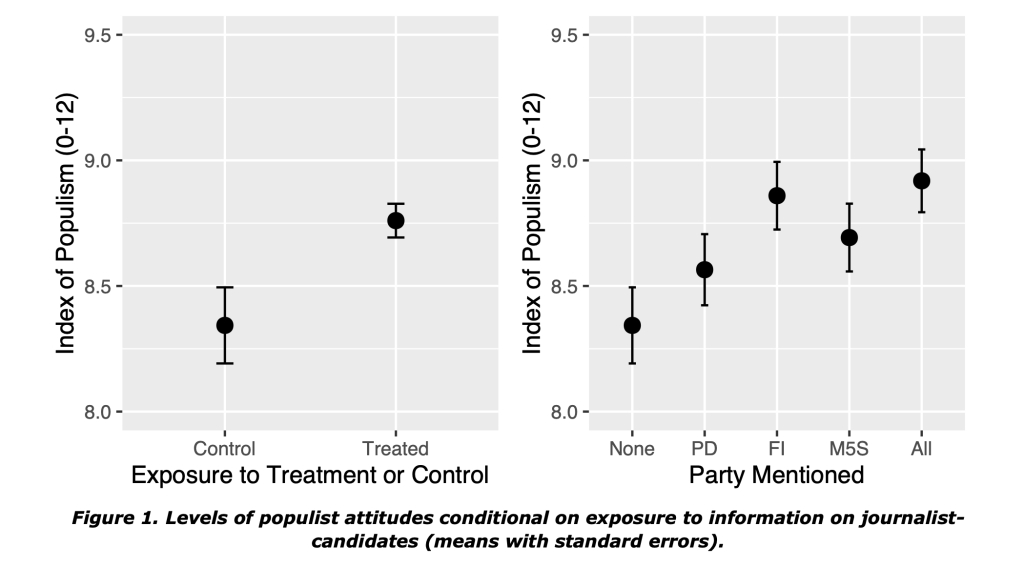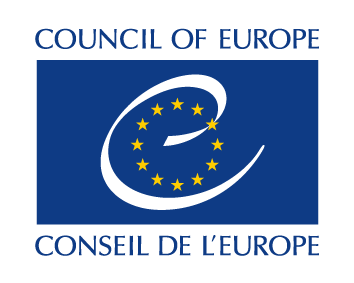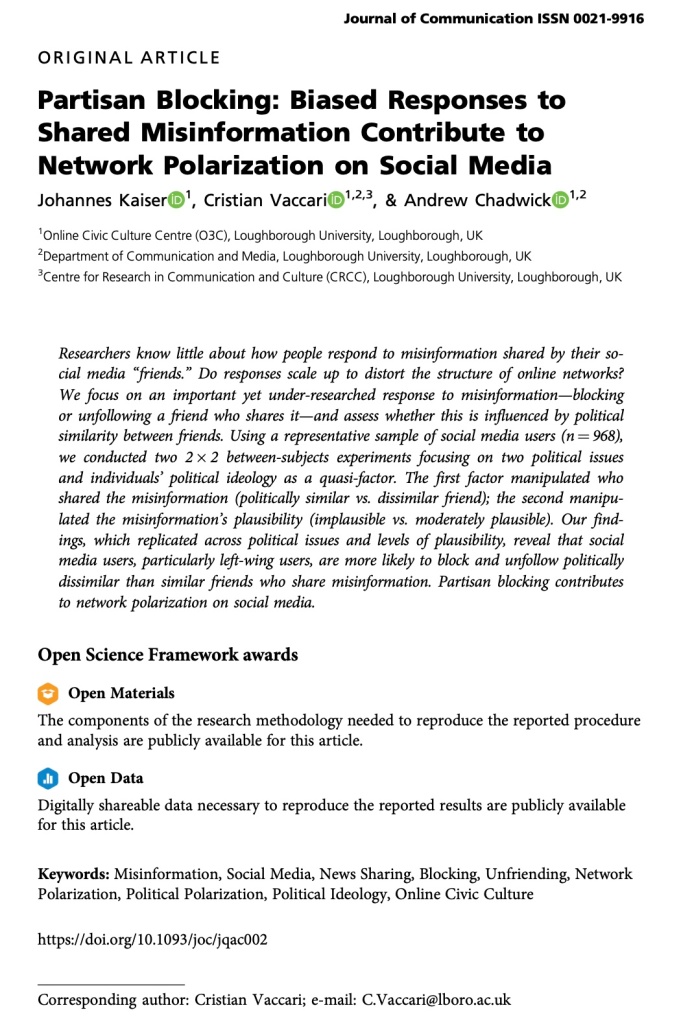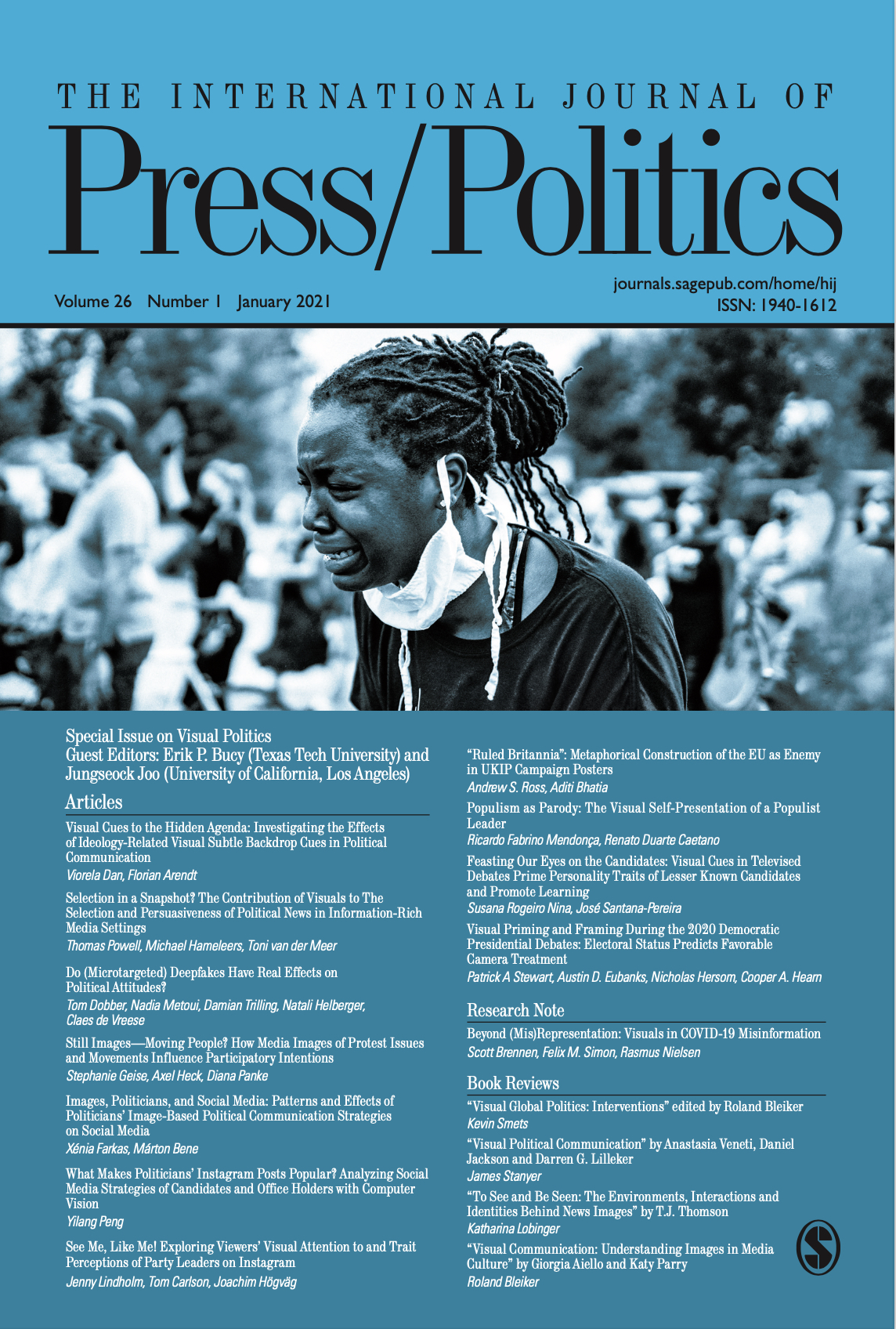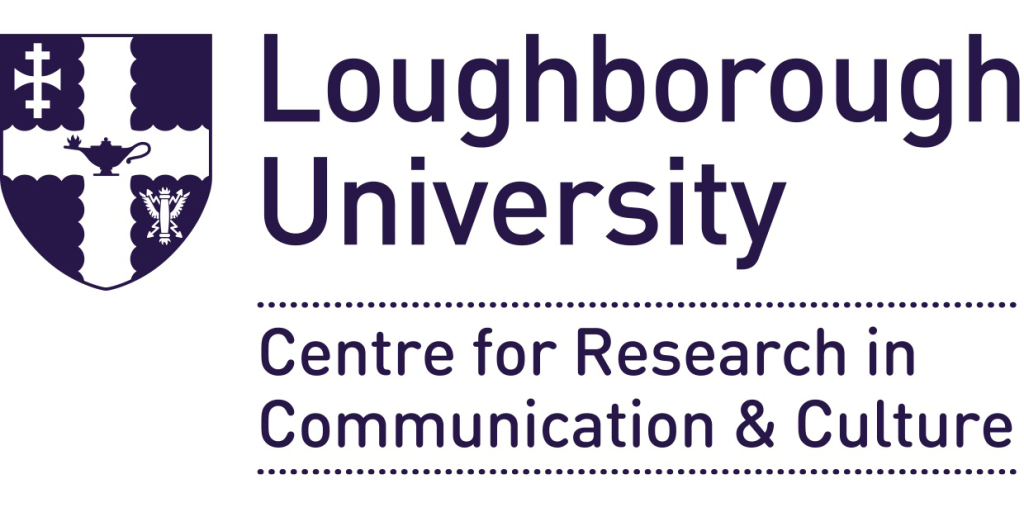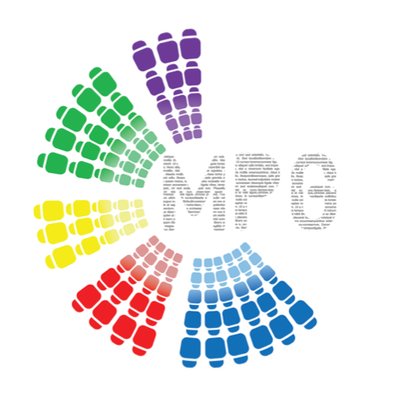On 11-13 October, ninety scholars from many different countries and disciplines will present research on the relationship between media and politics in an international perspective at the University of Edinburgh during the ninth conference of The International Journal of Press/Politics, which I am honored to serve as Editor-in-Chief. The conference will be held at the John McIntyre Conference Centre at the University of Edinburgh. Registration is required to participate in the conference.
Browse the program by day
Wednesday, October 11
Thursday, October 12
Friday, October 13
Wednesday, October 11
19:30 Conference inaugural dinner
Bistro du Vin Edinburgh, 11 Bristo Pl, Edinburgh EH1 1EZ
Thursday, October 12
8:30-9:00 Coffee and badge pickup
9:00-9:15 Welcome
Room: Pentland East
Cristian Vaccari (University of Edinburgh)
9:15-10:30 Keynote address
Room: Pentland East
Rasmus Kleis Nielsen (University of Oxford)
Platform power and State power
10:30-11:00 Coffee break
11:00-12:30 Panel 1A – Digital media, protest, and community-building
Room: Pentland East
Chair: Matthew Hindman (George Washington University)
Sabena Abdul Raheem (University of Iowa), Barikisu Ishaka (Michigan State University),
Inusah Mohammad (Purdue University) ** presenting remotely
Unleashing the Power of Digital Activism: Muslim Women, Non-Governmental Organizations, and the Fight for Social Equality
Frankie Ho Chun Wong (University of Maryland, College Park)
Not all protests are created equal to be news: Does digital connectivity level the playing field in the hybrid media system?
Yang Hu (Macau University of Science and Technology)
Clinging to politically similar others: The construction of interpretive communities in gangpiao’s microprocesses of politicization
11:00-12:30 Panel 1B – Media representation of issues and groups
Room: Pentland West
Chair: Ana Ines Langer (University of Glasgow)
Ayala Panievsky (University of Cambridge), Lior Birger (Tel Aviv University), Shahar Soham (Humboldt University of Berlin)
When Journalists Meet Refugees
Noha Mellor (University of Sharjah)
Mediating Poverty on Iraqi Television
Heinz Brandenburg (University of Strathclyde), Brian Boyle (University of Newcastle), Yulia Lemesheva (University of Strathclyde)
Demographic and Political Issue Representation in UK Public Broadcasting: Brexit and the Iraq War on BBC Question Time
11:00-12:30 Panel 1C – News coverage and public debate
Room: Salisbury
Chair: Irene Larraz (Universidad de Navarra)
Anna Sámelová (Comenius University in Bratislava)
From Television Ownership to Prison: The Ambivalent Role of Media in Promoting Narratives of a Toxic Celebrity
Liu Fangyuan and Sharma Rajat (Hong Kong Baptist University)
The Most Distant Neighbors: Comparing the Media Coverage of Political Leaders in China and India’s News Media
Deniz Demir (Marmara University)
Comparative Analysis of Media Influence in 2023 Elections: A Comparative Study of Greece and Turkey
12:30-13:30 Lunch break
13.30-15:00 Panel 2A – Theorizing and researching media effects
Room: Pentland East
Chair: Erik Bucy (Texas Tech University)
Thomas J. Billard, Nash Jenkins (Northwestern University)
A Dependency Model of Misinformation Effects
Maximilian Overbeck, Keren Tenenboim-Weinblatt, Christian Baden (Hebrew University of Jerusalem) ** presenting remotely
Projecting Tomorrow’s Challenges: A Theoretical and Empirical Investigation of Setting Future Agendas
Ana S. Cardenal (Universitat Oberta de Catalunya), David Hopmann (University of Southern Denmark), Silvia Majó-Vázquez (Vrije University Amsterdam), Ludovic Terren (University of Antwerp), Peter Van Aelst (University of Antwerp), Alon Zoizner (University of Haifa)
Does online media increase news learning? Evidence from survey and web-tracking data across five Western democracies
13.30-15:00 Panel 2B – News consumption and engagement
Room: Pentland West
Chair: Sophie Morosoli (University of Amsterdam)
Shira Dvir-Gvirsman, Lidor Ivan (Tel Aviv University)
Exploring the Influence of SES on News Supply and Engagement with News on Facebook
Willem Buyens (University of Antwerp)
Media political parallelism and user engagement with online news sharing posts by politicians in 15 countries
Silvia Majó Vázquez (Vrije University Amsterdam), Ana S. Cardenal (Universitat Oberta de Catalunya, María Victoria-Mas (Universitat Abat Oliva (Spain), Iván Lacasa (Universitat Internacional de Catalunya)
Ideological Diversity of Media Diets on Messaging Apps: Evidence from Mobile Navigation Data in the UK and Spain
13.30-15:00 Panel 2C – Media and politics: international perspectives
Room: Salisbury
Chair: Cherian George (Hong Kong Baptist University)
Hanne Tillemans (University of Antwerp), Kathleen Beckers (University of Amsterdam)
Examining Impartiality in Journalistic Ethics Codes: A Comparative Study
Ki-Sung Kwak (University of Sydney)
Press-Politics Relations in South Korea
Adrian Hillman (Goldsmiths, University of London)
Understanding of the role of advocacy in a polarized state: Revisiting the construction of news
15:00-15:30 Coffee break
15:30-17:30 Panel 3A – Artificial Intelligence, news, and politics
Room: Pentland East
Chair: Junyan Zhu (University of Sheffield)
Sophie Morosoli (University of Amsterdam)
I Resist. A Study on Individuals’ Attitudes towards AI in Journalism in Connection with Individual Acts of Resistance, Risk Perceptions and Trust
Benjamin Toff (University of Minnesota), Felix M. Simon (University of Oxford)
Can AI-generated journalism help build trust among skeptical audiences?
Taberez Ahmed Neyazi (National University of Singapore), Arif Nadaf (Islamic University, Kashmir), Tan Khai Ee (National University of Singapore), Ralph Schroeder ( University of Oxford)
The Effect of Information Seeking Behavior on Trust in AI in Asia: The Moderating Role Of Misinformation Concern
15:30-17:30 Panel 3B – Understanding the disconnect between news and citizens
Room: Pentland West
Chair: Camila Mont’Alverne (University of Oxford)
Hanne Peeters (KU Leuven), Joren Van Nieuwenborgh (University of Antwerp), Nathalie Van Raemdonck (Vrije Universiteit Brussels), Michaël Opgenhaffen (KU Leuven), Ike Picone (Vrije Universiteit Brussels), Peter Van Aelst (University of Antwerp)
Painting a picture of the doubtful news consumer: Exploring the concept of news doubt and news doubters’ strategies
Kim Andersen, Katrine Bruun Rasmussen (University of Southern Denmark)
Dimensions of Mainstream Media Criticism: A Mixed Methods Study of The Dissatisfied News Audience
Paul D’Angelo (The College of New Jersey) & Erik Bucy (Texas Tech University)
Priming Accountability: How Coverage of Media Scandal Primes Press Attitudes and Shapes Journalistic Credibility
Diego Garusi (University of Vienna), Sergio Splendore (University of Milan)
The platformization of news media trust: Trust patterns in a changing media environment
15:30-17:30 Panel 3C – Media and challenges to democracy and freedom
Room: Salisbury
Chair: Sumit Mukerji (University of Kalyani)
Stephen Harrington (Queensland University of Technology, Kristy Hess (Deakin University), Aljosha Karim Schapals (Queensland University of Technology), Timothy Graham (Queensland University of Technology)
‘Dark Political Communication’: A challenge for democracy
Ricardo Ribeiro Ferreira (University of Edinburgh)
“It Forces You to Publish Some Shit”: Towards a Taxonomy of De-democratising Journalistic Practices
WeiMing Ye, Shuangze Dai (Peking University)
Platforms’ Rule and Media Agencies’ Strategies under the Short Video Content Moderation Policy
17:30-18:00 Coffee break
18:00-19:00 Plenary to honor the winners of the 2023 Hazel Gaudet-Erskine Best Book Award
Room: Pentland East
Gadi Wolfsfeld (Reichman University)
The Politics-Media-Politics Approach (PMP): A Short Introduction to a Long Book
19:30 Conference dinner
South Hall, Pollock Halls, Address: 18 Holyrood Park Rd, Edinburgh EH16 5AR
Friday, October 13
8:30-9:00 Coffee and refreshments
9:00-10:30 Panel 4A – Online campaigning: Dynamics and developments
Room: Pentland East
Chair: Adam Shehata (University of Gothenburg)
Kate Dommett, Junyan Zhu, Samuel A. Mensah, Tom Stafford (University of Sheffield)
Understanding persuasive strategies used in online political advertising and how the public views them
Matt Walsh (Cardiff University), Jane B. Singer (City, University of London)
Disintermediated Campaigning on Facebook in Three UK General Elections
Ahmed El Kadib (University Paul Valéry and University of Burgundy), Idriss El Ouafa (University Ibn Zohr) ** presenting remotely
The Changing Landscape of Political Communication in Morocco: A Netnographic Analysis of Facebook during the 2016 and 2021 Elections
9:00-10:30 Panel 4B – Government censorship and propaganda
Room: Pentland West
Chair: Taberez Ahmed Neyazi (National University of Singapore)
Matt DeButts, Jennifer Pan (Stanford University)
Reporting After Removal: The Effects of Journalist Expulsion on Foreign News Coverage
Yunkang Yang (Texas A&M University), Stefan McCabe (George Washington University), Matthew Hindman (George Washington University)
Russian Propaganda on Facebook: Topic coverage and user engagement with RT and Sputnik over four years
Daria Kravets (University of Passau)
Yandex’s Top-5 News Algorithm As a Resource for Russia’s Informational Influence in Belarus: An Analysis From 2010 to 2022
9:00-10:30 Panel 4C – Communicating science in challenging times
Room: Salisbury
Chair: Lie Philip Santoso (Duke Kunshan University)
Ana Stojiljkovic, Sabina Mihelj (Loughborough University)
Pandemic Communication in Times of Populism
Rosalind Donald (American University), Lucas Graves (University of Wisconsin–Madison)
Comparing “accountability contexts”: How environmental facts matter in three distinct institutional settings
Delia Dumitrescu, Mina Trpkovic (Heidelberg University)
The Nonverbal Framing of Covid-19 Disinformation Messages in Global Perspective
10:30-11:00 Coffee break
11:00-13:00 Panel 5A – Political communication and the challenges of equality
Room: Pentland East
Chair: Kate Wright (University of Edinburgh)
Meredith D. Clark (Northeastern University)
Sins of Omission: Contemporary Implications of the AP Stylebook’s Historical Silence on Racism
Dayei Oh, Bok-Yong Shin (University of Helsinki)
Unveiling gender inequalities to sensationalising gender wars: Historical shift in South Korean press discourse on feminism using topic modelling, 1990-2022
Michael Heseltine (University of Amsterdam)
Hostile Public Engagement with Women in the Media
Rachel Grant, Nikki Lyons (University of Florida)
Focusing on the Fellas: Stacey Abrams’ Social Media Campaign Addresses Misogynoir
11:00-13:00 Panel 5B – Misinformation, misperceptions, and threats to democracy
Room: Pentland West
Chair: Ana S. Cardenal (Universitat Oberta de Catalunya)
Nikki Usher (University of San Diego), Jessica Hagman (University of Illinois Urbana-Champaign), Abigale Baines (University of San Diego), Mia Delmonico (University of San Diego)
A Micro study of a Mini-Trump: Media Storms, Politics-Media-Politics, and the Amplification of Anti-Democratic Actors
Jaume Suau (Blanquerna School of Communications and International Relations), David Puertas (Universitat Ramon Llull)
Assessing the reach and impact of disinformation narratives in European countries
Daniel Angus, Stephen Harrington, Axel Bruns, Nadia Alana Jude, Phoebe Matich, Edward Hurcombe (Queensland University of Technology)
“What else are they talking about?”: A large-scale longitudinal analysis of misinformation super-spreader communities on Facebook
Brian Weeks (University of Michigan)
The Emotional Dynamics of Partisan Media and Political Misperceptions
11:00-13:00 Panel 5C – Media systems and their political implications
Room: Salisbury
Chair: Noha Mellor (University of Sharjah)
Dina Vozab (University of Zagreb), Zrinjka Perusko (University of Zagreb), Filip Trbojević (University of Zagreb), Lars Nord (Mid Sweden University), Mart Ots (Jönköping University), Evangelia Psychogiopoulou (Hellenic Foundation for European and Foreign Policy), Marcus Kreutler (TU Dortmund), Peter Berglez (Örebro University), Ragne Kõuts-Klemm (University of Tartu), Epp Lauk (University of Tartu), Halliki Harro-Loit (University of Tartu)
Media System Characteristics for Deliberative Communication: A fsQCA analysis
Tamer Farag (Freie Universität Berlin), Christoph Neuberger (Freie Universität Berlin), Annika Sehl (Katholische Universität Eichstätt-Ingolstadt), Sonja Kretzschmar (Universität der Bundeswehr München), Jana Gäng (Freie Universität Berlin), Linda Wiethaus (Freie Universität Berlin)
Media System’s Transformation and Intrastate Conflict: Analyzing traditional and digital media in Afghanistan with a focus on the Taliban takeover
Meiqing Zhang (University of Southern California)
Media and the Delegitimation of Authoritarian Rule
Sumit Mukerji (University of Kalyani)
TRP and Indian Television: Creation of Political Combat zone
13:00-14:00 Lunch break
14:00-15:30 Panel 6A – Global threats to media freedom
Room: Pentland East
Chair: Nikki Usher (University of San Diego)
Kate Wright (University of Edinburgh), Martin Scott (University of East Anglia), Mel Bunce (City, University of London)
Capturing International Public Service Media
Cherian George, Cheng Yujia (Hong Kong Baptist University)
Enemies Within: Press versus Press Freedom in Hong Kong
Kenza Lamot (Vrije Universiteit Amsterdam), Kathleen Beckers (University of Amsterdam), Peter Van Aelst (University of Antwerp)
Silencing the Fourth Estate: Understanding the Origins and Impact of Intimidation and Harassment Against Political Journalists
14:00-15:30 Panel 6B – News, politics, and political polarization
Room: Pentland West
Chair: Patricia Rossini (University of Glasgow)
Camila Mont’Alverne, Amy Ross Arguedas, Sayan Banerjee, Benjamin Toff, Richard Fletcher, Rasmus Kleis Nielsen (University of Oxford)
Exposure to Partisan News, Affective Polarization, and Voting Choice: Evidence from the 2022 Brazilian Elections
Adam Shehata (University of Gothenburg)
News Exposure and the Social Dimension of Belief Reinforcement: A Study of Reinforcing Spirals Using Six-Wave Panel Survey and Focus Group Data
Lie Philip Santoso (Duke Kunshan University)
Who Cooperates with Whom? The Role of Day-to-Day Partisan Cooperation on Affective Polarization
14:00-15:30 Panel 6C – Climate communication: Promises and perils
Room: Salisbury
Chair: Brian Weeks (University of Michigan)
Edwin Jans, Sanne Kruikemeier, Rens Vliegenthart (Wageningen University & Research)
A recipe for a gridlock? Polarization around climate change in the media and political debates?
Lluis de Nadal (Glasgow University)
Climate Policy Contestations: The Role of Alternative Influence Networks on YouTube
Luca Rossi (IT University of Copenhagen), Alexandra Segerberg (Uppsala University), Luigi Arminio (IT University of Copenhagen), Matteo Magnani (Uppsala University)
Can you physically burst the bubble for climate?
15:30-16:00 Coffee break
16:00-17:30 Panel 7A – Politicians’ communication and self-presentation
Room: Pentland East
Chair: Willem Buyens (University of Antwerp)
Emma van der Goot (University of Amsterdam), Toni van der Meer (University of Amsterdam), Michael Hameleers (University of Amsterdam), Rens Vliegenthart (Wageningen University and Research)
Do politicians knowingly create conflict for media attention?
Diego Ceccobelli (University of Milan), Luigi Di Gregorio (Tuscia University)
Is it all a matter of authenticity? An analysis of seven Italian political leaders from a multi-level perspective
Haye Stein (Friedrich Schiller University Jena), Ines Engelmann (Friedrich Schiller University Jena), Simon M. Luebke (Ludwig Maximilian University of Munich) ** presenting remotely
The Impact of Politicians’ Populist Performance on Perceived Political Authenticity
16:00-17:30 Panel 7B – New perspectives on fact-checking
Room: Pentland West
Chair: Benjamin Toff (University of Oxford)
Irene Larraz, Ramón Salaverría, Javier Serrano-Puche (Universidad de Navarra)
Combating Repeated Lies: Impact of Fact Checking on Persistent Falsehoods by Politicians
Waqas Ejaz (University of Oxford), Sacha Altay (University of Zurich), Muhammad Ittefaq (James Madison University)
Trust, Engagement, and Belief: Unraveling the Dynamics of Fact-Checking
Lisa Waller, Lucy Morieson (RMIT University)
Where political science, journalism and fact-checking coalesce: An Australian case study of political promise tracking
16:00-17:30 Panel 7C – Government communication in times of crisis and change
Room: Salisbury
Chair: Delia Dumitrescu (Heidelberg University)
Aysenur Dal, Zeki Sarigil (Bilkent University)
Exposure to Competing Crisis Frames and Perceptions about the Freedom of Online Political Expression
Jairo Lugo-Ocando (University of Sharjah), Fisal Alaqil (King Saud University), Abdullah Alhuntush (King Khalid Military Academy)
Influencers, Journalists and Public Engagement with Science in MENA: Reach and co-opted message
Taner Dogan (Queen Margaret University)
Communicating Hagia Sophia as an emotional holy space and reshaping collective memory in a populist digital age
17:30-18:00 Concluding remarks
Room: Pentland East
Cristian Vaccari (University of Edinburgh)
18:00 Farewell drinks reception







